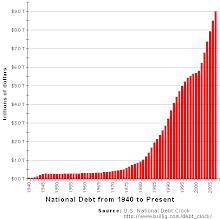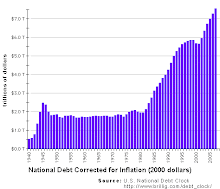WASHINGTON – Setting up a certain fight with big business, President Barack Obama is proposing a new regulatory agency to police lenders and protect consumers in credit, savings and other banking transactions. The consumer agency and a newly empowered Federal Reserve will be two of the central elements of a broad overhaul of the financial regulatory system that the president will announce on Wednesday, officials said.
Already the nation's central bank, the Federal Reserve would supervise large financial institutions that are considered so big that their failure could undermine America's economy, according to the administration proposal.
But even as the Fed gains new powers, Obama also would transfer some banking authority that now rests with the Federal Reserve and the Treasury Department to the new consumer agency — the Consumer Financial Protection Agency.
"There is going to be streamlining, consolidation and additional overlap so that you don't find people falling through the gaps, whether it's the consumer protection side, the investor protection side, the systemic risk that we need to make sure is avoided," Obama said Tuesday.
The expanded Fed role and the new consumer regulator are likely to be the two main political flash points in the administration's proposal. Many bankers oppose a new consumer protection regulator and many lawmakers in Congress worry the Fed could turn into a too-powerful and independent financial overseer. Friction over those points could slow any major overhaul of banking and market regulations.
In addition to having the Federal Reserve supervise "systemically significant" institutions, Obama will recommend a council of regulators, which would include the Fed, to monitor risk throughout the broader financial system.
The arrangement is designed to prevent any more crashes like those that felled AIG and Lehman Brothers.
In conjunction with the Fed's authority over large financial institutions and the new consumer agency, Obama will also propose:
• Requiring higher capital levels at financial institutions to avoid over-leveraging.
• Eliminating the Office of Thrift Supervision, which oversees savings institutions, and creating a new national bank regulator for all federally chartered banks.
• Additional protections for investors by requiring greater disclosure by hedge funds as well as regulations of credit default swaps and over-the-counter derivatives that previously operated outside of government oversight.
• Requiring brokers and originators of asset-backed securities to retain a 5 percent stake in the securities.
• A system for the orderly disposition of any troubled large interconnected firms whose failure poses a risk to the entire financial system, such as AIG.
Obama's plan does not attempt major consolidation of regulatory agencies and does not inject itself in an ongoing debate over whether to bring some insurance companies under federal oversight.
Asked on CNBC whether the plan stopped short out of political concerns, the Obama said: "We want to get this thing passed. We think speed is important ... but we don't want to tilt at windmills. ... We want to get the best regulatory system in place."
Obama's decision to create a consumer agency comes amid criticism that mortgage lenders and credit card companies have taken advantage of unwitting customers and saddled them with debt. The financial crisis was precipitated in part by the preponderance of securities backed by mortgages that went sour when the housing market collapsed.
Treasury spokesman Andrew Williams said lax consumer protections contributed to the financial crisis and that the recession revealed even more weaknesses in consumer protections across the spectrum of financial markets. The new agency, he said, will "help ensure that consumers have the protection and the representation they deserve."
The new regulator would have the power to impose fines and allow states to pass laws that are stricter than the federal standards — an approach favored by consumer advocates. Consumer protections are now spread among various state and federal authorities, including the Fed, the Securities and Exchange Commission, the Federal Trade Commission and banking regulators.
"Tremendous problems could have been avoided had such an agency weighed in against some of the abusive practices that Congress acted on only recently," said Travis Plunkett, legislative director of the Consumer Federation of America, citing excessive bank fees and misleading practices.
But business leaders made their opposition clear.
David Hirschmann, president and CEO of the U.S. Chamber of Commerce's Center for Capital Markets, said the chamber will oppose a standalone agency "that cannibalizes regulatory expertise, adding yet another regulatory layer."
The administration will also have to use its political skills to strengthen the Fed. While Democrats generally agree with a need for regulatory changes, many oppose relying too heavily on the Fed.
They say its status as a politically independent organization would make it difficult to keep the newly empowered organization in check.
"What happens if the representatives of the people and the president want a certain action and it's not taken?" asked Rep. Paul Kanjorski of Pennsylvania, a senior Democrat on the House Financial Services Committee.
"You can't fire the chairman of the Federal Reserve," Kanjorski said.
Likewise, Sen. Christopher Dodd, chairman of the Banking Committee, opposes adding new tasks to the Fed. In private deliberations with the administration, Dodd has advocated an alternative plan to strip the Fed of its regulatory role entirely and create a new consolidated bank regulator that would assume the roles that the Fed and Federal Deposit Insurance Corp. now play in helping regulate state-chartered banks.
Under this scenario, the Fed would focus on its existing mission as the nation's central bank — setting monetary policy and acting as a "lender of last resort."
Dodd, however, is a strong proponent of a consumer protection agency and is likely to champion that component of Obama's plan.
Rep. Barney Frank, D-Mass., chairman of the House Financial Services Committee, has not taken a position on the administration's plan to bolster the powers of the Fed. A spokesman said Frank supports the idea of monitoring risk across the financial system.
In a staff document circulated last week, House Republicans on the committee argued that expanding the Fed's responsibilities and increasing government spending pose "a far more significant source of 'systemic risk' to our nation's economy than the failure of any specific financial institution."
See also "Increased Regulation of Financial Markets."






Great idea
ReplyDelete